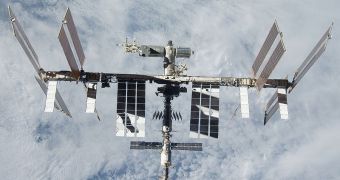According to the international agreements among the space agencies involved in the International Space Station (ISS), the sky lab is to end its operations by 2015. However, more and more of the countries involved are beginning to question if it is wise to put an end to the ISS, after it operated at full capacity for only a few years. The Russian Federation has recently announced its intentions of managing the station even after 2015, although it will have to fly the most numerous flights to orbit after the US retires its shuttle fleet, Reuters reports.
In March 2010, the leaders of all space agencies involved in the ISS Project will convene, most likely in Japan, and discuss about the future of the station. Alexei Krasnov, who is the head of manned spaceflight operations at Russia's space agency, RosCosmos, said yesterday in a conference that he believed the leaders would decide to continue operating the station beyond 2015. “The main question to be raised [at the conference] is whether to extend the life of the ISS beyond 2015. I believe the issue will be approved.”
He was speaking at the Mission Control, just outside of Moscow, shortly after the members of Expedition 20, and space tourist Guy Laliberte, landed in Kazakhstan aboard the Soyuz TMA-14 spacecraft. The founder of the famous circus troupe Cirque du Soleil spent 11 days aboard the ISS, in an attempt to raise awareness on issues related to the access to freshwater sources for all people. The other two professional astronauts, Gennady Padalka and Michael Barratt, have just finished their six-month stays on the ISS, where they acted as commander and flight engineer, respectively.
RKK Energia, the company that manufactures the Soyuz space capsules, announced that this year would see four flights, which is twice as much as usual. The General Director of the company, Vitaly Lopota, informed that six unmanned cargo vessels, most likely Progress-class vehicles, would be launched to the station each year until the United States had their Project Constellation ready for work. “We work economically, we live economically and we maintain the station in an economical way,” Lopota said.
For future flights to the ISS, NASA will have to pay RosCosmos $50 million per seat, for a trip aboard a Soyuz capsule. The European Space Agency, ESA, has already announced its intention of acquiring capsules of its own, which it plans to launch aboard Ariane 5 delivery systems.

 14 DAY TRIAL //
14 DAY TRIAL //